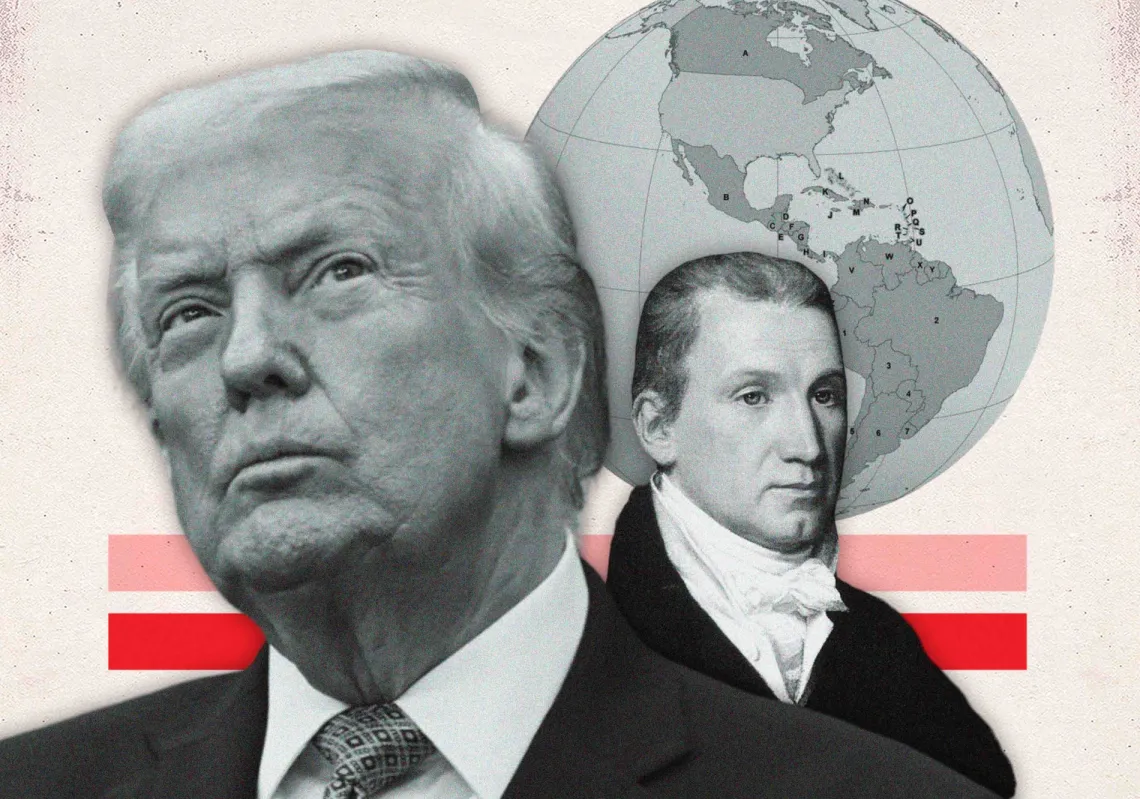 Russian President Vladimir Putin (L) shakes hands with Chinese President Xi Jinping during a signing ceremony in Beijing's Great Hall of the People on June 25, 2016 in Beijing, China. (Getty)[/caption]
Russian President Vladimir Putin (L) shakes hands with Chinese President Xi Jinping during a signing ceremony in Beijing's Great Hall of the People on June 25, 2016 in Beijing, China. (Getty)[/caption]
by Joseph S. Nye Jr.
Washington has been wrestling with a new term that describes an old threat. “Sharp power,” as coined by Christopher Walker and Jessica Ludwig of the National Endowment for Democracy (writing for ForeignAffairs.com and in a longer report), refers to the information warfare being waged by today’s authoritarian powers, particularly China and Russia. Over the past decade, Beijing and Moscow have spent tens of billions of dollars to shape public perceptions and behavior around the world—using tools new and old that exploit the asymmetry of openness between their own restrictive systems and democratic societies. The effects are global, but in the United States, concern has focused on Russian interference in the 2016 presidential election and on Chinese efforts to control discussion of sensitive topics in American publications, movies, and classrooms.
In their National Endowment for Democracy report, Walker and Ludwig argue that the expansion and refinement of Chinese and Russian sharp power should prompt policymakers in the United States and other democracies to rethink the tools they use to respond. They contrast sharp power, which “pierces, penetrates, or perforates the political and information environments in the targeted countries,” with “soft power,” which harnesses the allure of culture and values to enhance a country’s strength. And democracies, they argue, must not just “inoculate themselves against malign authoritarian influence” but also “take a far more assertive posture on behalf of their own principles.”
Today, the challenge posed by Chinese and Russian information warfare is real. Yet in the face of that challenge, democratic governments and societies should avoid any temptation to imitate the methods of their adversaries. That means taking care not to overreact to sharp power in ways that undercut their true advantage. Even today, that advantage comes from soft power.
[caption id="attachment_55255410" align="aligncenter" width="5568"]
 US President Donald Trump (2nd R) speaks to China's President Xi Jinping (L), as US First Lady Melania Trump (2nd L) and Xi's wife Peng Liyuan (R) look on, the Great Hall of the People in Beijing on November 9, 2017. (Getty) [/caption]
US President Donald Trump (2nd R) speaks to China's President Xi Jinping (L), as US First Lady Melania Trump (2nd L) and Xi's wife Peng Liyuan (R) look on, the Great Hall of the People in Beijing on November 9, 2017. (Getty) [/caption]
THE STAYING POWER OF SOFT POWER
In international politics, soft power (a term I first used in a 1990 book) is the ability to affect others by attraction and persuasion rather than through the hard power of coercion and payment. Soft power is rarely sufficient on its own. But when coupled with hard power, it is a force multiplier. That combination, though hardly new (the Roman Empire rested on both the strength of Rome’s legions and the attractions of Rome’s civilization), has been particularly central to U.S. leadership. Power depends on whose army wins, but it also depends on whose story wins. A strong narrative is a source of power.
Soft power is not good or bad in itself. It is not necessarily better to twist minds than to twist arms. Osama bin Laden neither threatened nor paid the men who flew aircraft into the World Trade Center—he had attracted them with his ideas. But although soft power can be used to evil ends, its means depend on voluntarism, which is preferable from the point of view of human autonomy.
Hard power, by contrast, rests on inducements by payment or coercion by threat. If someone puts a gun to your head and demands your wallet, it does not matter what you want or think. That is hard power. If that person is trying to persuade you to freely give up your wallet, everything depends on what you want or think. That is soft power.
Sharp power, the deceptive use of information for hostile purposes, is a type of hard power. The manipulation of ideas, political perceptions, and electoral processes has a long history. Both the United States and the Soviet Union resorted to such methods during the Cold War. Authoritarian governments have long tried to use fake news and social disruption to reduce the attractiveness of democracy. In the 1980s, the KGB seeded the rumor that AIDS was the product of U.S. government experiments with biological weapons; the rumor started with an anonymous letter to a small New Delhi newspaper and then was propagated globally by widespread reproduction and constant repetition. In 2016, an updated version of the same technique was used to create “Pizzagate,” the false rumor that Hillary Clinton’s campaign manager had abused children in a Washington restaurant.
What’s new is not the basic model; it’s the speed with which such disinformation can spread and the low cost of spreading it. Electrons are cheaper, faster, safer, and more deniable than spies. With its armies of paid trolls and botnets, along with outlets such as Russia Today (RT) and Sputnik, Russian intelligence, after hacking into the e-mails of the Democratic National Committee and senior Clinton campaign officials, could distract and disrupt news cycles week after week.
But if sharp power has disrupted Western democratic processes and tarnished the brand of democratic countries, it has done little to enhance the soft power of its perpetrators—and in some cases it has done the opposite. For Russia, which is focused on playing a spoiler role in international politics, that could be an acceptable cost. China, however, has other aims that require the soft power of attraction as well as the coercive sharp power of disruption and censorship. These two goals are hard to combine. In Australia, for example, public approval of China was growing, until increasingly alarming accounts of its use of sharp power tools, including meddling in Australian politics, set it back considerably. Overall, China spends $10 billion a year on its soft power instruments, according to George Washington University’s David Shambaugh, but it has gotten minimal return on its investment. The “Soft Power 30” index ranks China 25th (and Russia 26th) out of 30 countries assessed.
THE DEMOCRAT’S DILEMMA
Although sharp power and soft power work in very different ways, the distinction between them can be hard to discern—and that’s part of what makes responding to sharp power difficult. All persuasion involves choices about how to frame information. Only when that framing shades into deception, which limits the subject’s voluntary choices, does it cross the line into coercion. It is this quality—openness and limits on deliberate deception—that distinguishes soft from sharp power. Unfortunately, it is not always easy to see.
In public diplomacy, when Moscow’s RT or Beijing’s Xinhua broadcasts openly in other countries, it is employing soft power, which should be accepted even if the message is unwelcome. When China Radio International covertly backs radio stations in other countries, that crosses the line into sharp power, which should be exposed. Without proper disclosure, the principle of voluntarism has been breached. (The distinction applies to U.S. diplomacy as well: during the Cold War, secret funding for anticommunist parties in the 1948 Italian election and the CIA’s covert support to the Congress for Cultural Freedom were examples of sharp power, not soft power.)
Today’s information environment introduces additional complications. In the 1960s, the broadcaster Edward R. Murrow noted that the most important part of international communications was not the ten thousand miles of electronics, but the final three feet of personal contact. But what does that mean in a world of social media? “Friends” are a click away, and fake friends are easy to fabricate; they can propagate fake news generated by paid trolls and mechanical bots. Discerning the dividing line between soft and sharp power online has become a task not only for governments and the press but also for the private sector.
As democracies respond to sharp power, they have to be careful not to overreact, so as not to undercut their own soft power by following the advice of those who advocate competing with sharp power on the authoritarian model. Much of this soft power comes from civil societies—in the case of Washington, Hollywood, universities, and foundations more than official public diplomacy efforts—and closing down access or ending openness would waste this crucial asset. Authoritarian countries such as China and Russia have trouble generating their own soft power precisely because of their unwillingness to free the vast talents of their civil societies.
Moreover, shutting down legitimate Chinese and Russian soft power tools can be counterproductive. Like any form of power, soft power is often used for competitive zero-sum purposes, but it can also have positive-sum effects. For example, if China and the United States wish to avoid conflict, exchange programs that increase American attraction to China, and vice versa, can be good for both countries. And on transnational challenges such as climate change, soft power can help build the trust and networks that make cooperation possible. Yet as much as it would be a mistake to prohibit Chinese soft power efforts simply because they sometimes shade into sharp power, it is important to monitor the dividing line carefully. Take the 500 Confucius Institutes and 1,000 Confucius classrooms that China supports in universities and schools around the world to teach Chinese language and culture. Government backing does not mean they are necessarily a sharp power threat. The BBC also gets government backing but is independent enough to remain a credible soft power instrument. Only when a Confucius Institute crosses the line and tries to infringe on academic freedom (as has occurred in some instances) should it be treated as sharp power.
To respond to the threat, democracies should be careful about offensive actions. Information warfare can play a useful tactical role on the battlefield, as in the war against ISIS. But it would be a mistake for them to imitate the authoritarians and launch major programs of covert information warfare. Such actions would not stay covert for long and when revealed would undercut soft power.
In the realm of defensive measures, meanwhile, there are some steps that democratic governments can take to counter the authoritarians’ aggressive information warfare techniques, including cyberattacks on political processes and elections. Democracies have not yet developed adequate strategies for deterrence and resilience. They will also have to be more attentive to making sure that Russian and Chinese soft power programs, such as Confucius Institutes, do not slip into “sharp” power. But openness remains the best defense: faced with this challenge, the press, academics, civic organizations, government, and the private sector should focus on exposing information warfare techniques, inoculating the public by exposure.
Fortunately, that is another edge that democracies have over dictatorships. It is true that the openness of democratic societies provides opportunities for authoritarian governments to employ age-old techniques of information warfare. But openness is also a key source of democracies’ ability to attract and persuade. Even with the mounting use of sharp power, they have little to fear in open competition with autocracies for soft power. By reducing themselves to the level of their adversaries, democracies would squander their key advantage.
This article was originally published on ForeignAffairs.com.









